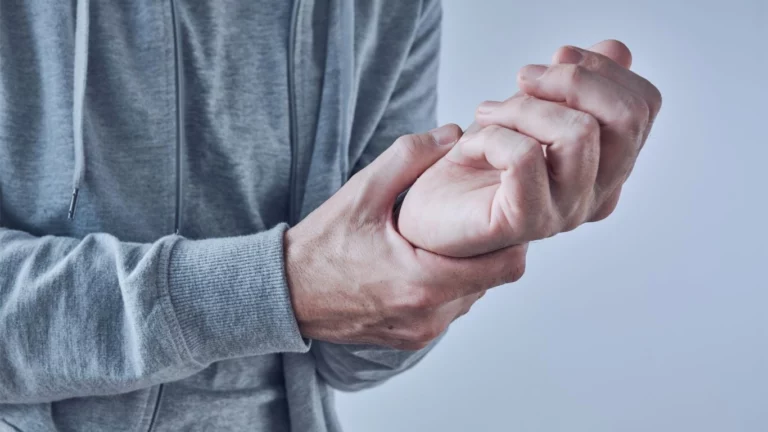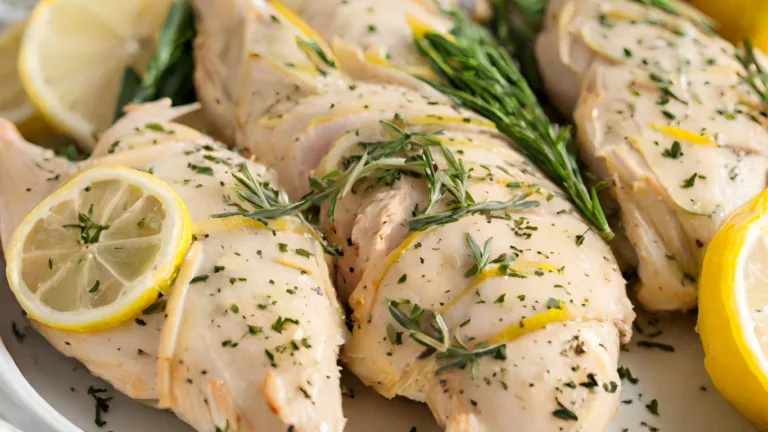Can Dehydration Worsen GERD Symptoms? The Hidden Link You Need to Know
Dehydration is one of those sneaky issues that many of us overlook, even though it can impact our health in ways we might not immediately connect. If you’ve ever had GERD (Gastroesophageal Reflux Disease), you might already know that managing symptoms is a constant balancing act—watching what you eat, keeping track of stress levels, and staying on top of medications. But what if I told you that dehydration could make your GERD symptoms worse? It’s true.
In fact, one of the most overlooked factors in GERD management is staying hydrated. In this article, we’ll explore the relationship between dehydration and GERD, how dehydration can trigger or worsen your symptoms, and what you can do to keep yourself feeling better. Trust me, this is something that’s worth diving into.
Understanding GERD: The Basics You Need to Know

Before we dive into how dehydration can impact GERD, let’s make sure we’re all on the same page about what GERD actually is. GERD, or Gastroesophageal Reflux Disease, is a condition where stomach acid frequently flows back into the esophagus. This acid reflux can lead to uncomfortable symptoms like heartburn, regurgitation, chest pain, and a sour taste in the mouth. Over time, if left untreated, GERD can damage the lining of the esophagus, leading to more severe complications.
Now, here’s the thing. GERD is not just about eating spicy food or drinking too much coffee. It’s a complex condition influenced by many factors, including lifestyle habits, food choices, and even the way you manage stress. If you’ve been living with GERD for a while, you probably have your own set of triggers. But what many people don’t realize is that dehydration can also play a role in making those symptoms worse.
How Dehydration Affects GERD Symptoms

At its core, dehydration means your body isn’t getting enough fluids to function properly. And when it comes to GERD, hydration plays a key role in ensuring that your digestive system works as smoothly as possible. When you’re dehydrated, several things can happen that aggravate GERD symptoms:
1. Decreased Saliva Production
Saliva is often overlooked as a crucial part of digestion. But it’s vital. Not only does it help break down food in your mouth, but it also acts as a natural buffer to stomach acid. When you’re dehydrated, your body doesn’t produce enough saliva, which means there’s less of that natural buffering action happening in your esophagus. This can lead to more acid irritation and an increase in the discomfort associated with GERD.
2. Slower Digestion
Water is essential for many of the enzymatic processes in your digestive system. If you’re not drinking enough, your stomach and intestines can’t do their job as efficiently. This slowdown in digestion can cause food to linger longer in the stomach, increasing the chances of acid reflux. It’s like your stomach becomes a pressure cooker that just keeps building up, ready to overflow at the slightest trigger.
3. Thicker Mucus
When you’re dehydrated, your body starts producing thicker mucus, which can stick to your esophagus and make it even harder for food and acid to move through your digestive tract. This can contribute to a sensation of tightness or discomfort, making your GERD symptoms feel more intense.
Why Hydration Is More Important Than You Think

So, why is staying hydrated so crucial for GERD sufferers? It’s simple: your body relies on water for so many different processes, including digestion. If you’re not getting enough fluid, you’re essentially setting yourself up for discomfort, especially if you’re already prone to GERD. Proper hydration helps to:
- Support your digestive system: Water helps break down food and move it through your stomach and intestines.
- Maintain a healthy balance of stomach acids: Staying hydrated can help maintain a better pH balance in your stomach, reducing the chance of acid reflux.
- Improve mucus production: This helps protect your esophagus from stomach acid.
- Reduce bloating: Dehydration can lead to bloating, which can make your GERD symptoms feel worse.
What Happens If You’re Dehydrated? Signs You Might Be at Risk
If you’re wondering whether dehydration is something you need to worry about, here are a few signs to look out for:
- Dry mouth: This is one of the most obvious signs. A lack of saliva can make it harder to swallow and may lead to a sore throat.
- Fatigue: If you feel unusually tired or sluggish, it could be due to dehydration.
- Dark yellow urine: Your urine should be pale yellow. If it’s dark, you may be dehydrated.
- Headaches: Dehydration can lead to tension headaches, which can make GERD symptoms feel even worse.
- Constipation: Dehydration can slow down your bowel movements, making your digestive system feel sluggish.
If you notice any of these signs, it might be time to pay more attention to your fluid intake. As someone who’s spent years working with GERD patients, I can tell you that staying hydrated isn’t just about drinking water when you feel thirsty. It’s about making hydration a part of your daily routine to avoid a chain reaction of digestive problems.
The Role of Water in Your Daily GERD Management

Now that we understand how dehydration can worsen GERD symptoms, let’s talk about how you can incorporate proper hydration into your daily routine to keep GERD at bay. You may be thinking, “Okay, so drinking more water sounds simple enough, but what about other fluids?” Well, you’re not alone in that thought. It’s not just about gulping down water; there are some strategic ways to hydrate that can benefit you in the long run.
1. Start with Water First
It seems obvious, but I can’t stress it enough—water should be your go-to drink. Many of us turn to coffee, soda, or juice as our primary fluid sources, but these drinks can actually irritate GERD. For example, caffeine in coffee and soda can increase acid production, and sugary beverages can contribute to bloating and gas. The best way to start your day is with a glass of room-temperature water. This can help kickstart your digestion and get your stomach working smoothly. It’s a small habit, but it makes a huge difference in keeping your esophagus happy.
2. Sipping Throughout the Day
Instead of chugging a ton of water at once, which can leave you feeling bloated and uncomfortable, try sipping water slowly throughout the day. This helps your body stay hydrated without overloading your digestive system all at once. I’ve found that carrying a reusable water bottle around with me helps me remember to stay hydrated, and it’s easier to track how much I’m drinking. Plus, having water always within arm’s reach is a good reminder to drink regularly, especially if you’re managing GERD.
3. The Best Types of Water for GERD
Not all water is created equal, especially when it comes to GERD. While plain water is usually the safest bet, some people find that alkaline water is a great option. Alkaline water has a higher pH level, which can help neutralize stomach acid. It may not be necessary for everyone, but it’s worth trying if you find regular water isn’t giving you the relief you need. However, it’s important to steer clear of carbonated water, which can create extra pressure on your stomach and lead to acid reflux.
Other Fluids to Avoid (Besides Water)

As I mentioned before, it’s not just about drinking enough fluids—it’s about drinking the right fluids. Some drinks can make GERD symptoms worse, and I know from experience how easy it is to grab that can of soda or that second cup of coffee without realizing the damage it could be doing.
Caffeine
Caffeine is a major trigger for many people with GERD. Whether it’s coffee, tea, or energy drinks, the stimulant can cause your stomach to produce more acid, which can make reflux worse. While I’m not saying you have to cut out caffeine entirely (I’m a coffee lover myself), it’s important to limit your intake and find a balance that works for your body. Some GERD sufferers find that even one cup of coffee in the morning can set off their symptoms, while others can tolerate it in moderation.
Alcohol
Alcohol is another culprit that can irritate GERD symptoms. It relaxes the lower esophageal sphincter, the muscle that prevents stomach acid from flowing back into your esophagus. When this muscle is relaxed, acid reflux is more likely to occur. Plus, alcohol is a known dehydrator, which, as we’ve already established, can worsen GERD. If you enjoy a drink now and then, it’s best to opt for moderate consumption and steer clear of alcohol on an empty stomach, which can be a real trigger.
Carbonated Beverages
Pop, sparkling water, and fizzy drinks might seem refreshing, but the carbonation in these beverages can lead to bloating and increased pressure on the stomach. This added pressure can cause acid reflux to occur, especially when you’re already prone to it. If you’re craving a refreshing drink, try opting for still water or herbal tea instead.
Hydration and Diet: How to Pair Them for Maximum Relief
When managing GERD, hydration is just one part of the equation. What you eat also plays a huge role in how well you manage your symptoms. I’ve worked with so many GERD patients over the years, and one thing I always emphasize is that hydration and diet go hand in hand. It’s not just about drinking enough fluids—it’s about choosing the right ones, paired with foods that are less likely to irritate your digestive system.
Foods That Complement Hydration
When it comes to pairing hydration with your meals, think about foods that are gentle on your stomach and help maintain proper hydration levels. Here are some options that I recommend:
- Fruits and Vegetables: These are packed with water and are often easy on the stomach. Cucumbers, watermelon, and oranges are great choices for hydration.
- Oatmeal: A warm, soothing bowl of oatmeal can provide hydration while also being gentle on your stomach. Plus, it’s a great source of fiber.
- Soups and Broths: Soups are another excellent source of hydration and can provide a comforting meal without triggering reflux. Just avoid overly spicy or acidic varieties.
- Herbal Teas: Herbal teas like chamomile, ginger, or peppermint can provide hydration while also soothing your digestive tract.
Foods to Avoid While Hydrating
As tempting as it is to pair your water with spicy snacks or a heavy meal, there are certain foods that can irritate GERD symptoms, even if you’re properly hydrated. Here are a few foods to keep an eye on:
- Tomatoes and citrus: These acidic foods can increase stomach acid production and worsen reflux.
- Fried or fatty foods: Greasy foods can slow digestion, making reflux more likely to happen.
- Chocolate: Unfortunately, chocolate can relax the lower esophageal sphincter, allowing acid to flow back into the esophagus.
Creating a Hydration Plan that Works for You
One of the most effective ways to keep your GERD symptoms in check is to create a hydration plan that fits your lifestyle. I’ve worked with many people who struggle to drink enough water, either because they forget or because they don’t like the taste. If that sounds like you, here are a few tips to help make hydration a regular part of your day:
- Set a reminder: Use your phone or a hydration app to remind you to drink water regularly.
- Infuse your water: Add a slice of lemon or cucumber to your water for a refreshing twist.
- Track your intake: Keep track of how much you drink each day to ensure you’re hitting your hydration goals.
Remember, managing GERD isn’t just about treating the symptoms—it’s about creating a lifestyle that supports your digestive health. Hydration is a crucial part of that, and the more consistent you are, the better you’ll feel.
Practical Tips for Staying Hydrated Without Worsening GERD Symptoms

By now, you probably understand that staying hydrated is an essential part of managing GERD. But let’s be honest—knowing that hydration is important and actually putting it into practice are two different things. Especially when you’re juggling all the other aspects of managing GERD, it’s easy to forget about how much water you’re actually drinking. But don’t worry—I’ve got your back! Here are a few practical tips to help you stay hydrated and keep your GERD symptoms in check.
1. Drink Water Before, Not After Meals
If you’re like most people, you might find yourself reaching for a glass of water during or right after meals. However, this might not be the best strategy if you suffer from GERD. Drinking too much water right after eating can dilute stomach acids, which may delay digestion and increase the likelihood of reflux. Instead, try drinking a glass of water about 30 minutes before your meal. This will hydrate you without interfering with digestion, giving your body a chance to process food more efficiently.
2. Avoid Ice-Cold Water
While ice-cold water might sound refreshing, it can actually slow down your digestion. When you drink water that’s too cold, it can cause your stomach to contract, making it harder for food and liquids to move through the digestive tract. This could increase pressure on the lower esophageal sphincter, triggering acid reflux. Warm or room-temperature water is much gentler on your digestive system, so make that your go-to choice.
3. Choose Hydrating, GERD-Friendly Beverages
Aside from plain water, there are other drinks that can help you stay hydrated without irritating your GERD. For example, herbal teas like chamomile or ginger are soothing on the stomach and can even help reduce inflammation. If you’re looking for a bit more flavor, try adding a slice of cucumber, lemon, or mint to your water. These options are both hydrating and GERD-friendly, providing a refreshing twist without the risk of acid reflux.
4. Consider the Timing of Your Water Intake
While it’s important to stay hydrated, timing is everything when it comes to GERD. Avoid drinking large amounts of water right before bed. Drinking too much liquid before sleeping can increase your chances of nighttime acid reflux, which tends to be worse when lying down. Instead, try sipping small amounts of water throughout the day, and limit your water intake at least 30 minutes before bedtime. This will give your body enough time to process the fluids before you lie down for the night.
How to Create a Hydration Plan That Works for You

Creating a hydration plan that works for your GERD doesn’t have to be complicated. But the key is consistency. Trust me, I’ve worked with a lot of people over the years who struggle with hydration, and it always comes down to setting manageable goals and sticking to them. Here are some practical steps you can take to build your own hydration plan:
1. Set a Daily Hydration Goal
Start by setting a clear hydration goal. Aim for at least eight 8-ounce glasses of water a day. I recommend tracking your intake with a water bottle that has measurement markers on the side, or using an app on your phone. This will help you stay on top of your hydration, especially if you tend to forget to drink enough. If you’re working to overcome dehydration, you might need to increase your intake gradually, so listen to your body and adjust as needed.
2. Take Small Sips, Not Gulping
One of the most common mistakes people make when it comes to hydration is gulping down a large amount of water at once. This can put unnecessary pressure on your stomach and lead to bloating, which can worsen GERD symptoms. Instead, take small sips throughout the day. This allows your body to absorb the water more effectively without overloading your digestive system.
3. Incorporate Water-Rich Foods
As I mentioned earlier, staying hydrated is not just about drinking fluids—it’s about consuming hydrating foods too. Vegetables and fruits with high water content like cucumbers, watermelon, oranges, and strawberries can provide additional hydration without irritating your GERD. Incorporating these into your meals is an easy way to support your hydration efforts while maintaining a balanced diet.
What to Do If You Still Struggle with Dehydration and GERD
If you’ve tried everything and still struggle to stay hydrated or manage your GERD symptoms, it’s important to consult with a healthcare professional. They can assess your situation and offer more personalized advice. Sometimes, dehydration and GERD can be related to other underlying health conditions that require specific treatment. A doctor or dietitian can also help you develop a tailored hydration and diet plan that works for your body.
Consider Electrolyte Drinks
In some cases, simply drinking water might not be enough to keep you hydrated, especially if you’re suffering from chronic dehydration. Electrolyte drinks (without added sugars or artificial ingredients) may be a helpful addition to your hydration strategy. Electrolytes help balance the fluids in your body, which is especially important if you’re dealing with frequent acid reflux. Just make sure to choose options that are low in sugar, as too much sugar can aggravate GERD symptoms.
Don’t Ignore the Warning Signs
If you find yourself constantly dehydrated or experiencing worsening GERD symptoms, don’t just brush it off. Your body is telling you something. Signs of dehydration include dark urine, dry mouth, dizziness, fatigue, and headaches. These should not be ignored, especially if you have GERD, as dehydration can make symptoms more difficult to manage. Taking small steps to address your hydration needs can make a big difference in the long term.
References and Resources
For more information on GERD, dehydration, and digestive health, be sure to check out the following resources:
These links provide expert advice and further reading to help you on your journey to better digestive health.
Disclaimer
While the information provided in this article is based on my experience and current understanding of GERD and dehydration, it is important to consult with a healthcare provider before making any significant changes to your hydration habits or GERD management plan. Each individual’s condition is unique, and personalized medical advice is crucial for effective treatment. This article is not intended to replace professional medical advice.
Remember, managing GERD is a holistic approach that involves understanding the interplay between hydration, diet, lifestyle, and stress management. Staying hydrated is just one piece of the puzzle, but it’s an important one. Consistent, mindful hydration can help you feel better, reduce your GERD symptoms, and make everyday life a little easier. Stay hydrated and take care of yourself!

Camellia Wulansari is a dedicated Medical Assistant at a local clinic and a passionate health writer at Healthusias.com. With years of hands-on experience in patient care and a deep interest in preventive medicine, she bridges the gap between clinical knowledge and accessible health information. Camellia specializes in writing about digestive health, chronic conditions like GERD and hypertension, respiratory issues, and autoimmune diseases, aiming to empower readers with practical, easy-to-understand insights. When she’s not assisting patients or writing, you’ll find her enjoying quiet mornings with coffee and a medical journal in hand—or jamming to her favorite metal band, Lamb of God.







